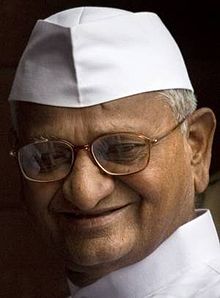Some important and general knowledge facts of BOMBAY aka AMCHI MUMBAI
Awesome BOMBAY
- Bombay has no bombs and is a harbour not a bay.
- Churchgate has neither a church nor a gate. It is a railway station.
- There is no darkness in Andheri.
- Lalbaag is neither red nor a garden.
- No king ever stayed at Kings Circle .
- Nor did Queen Victoria stay at Victoria Terminus.
- Nor is there any princess at Princess Street .
- Lower Parel is at the same level as Parel
- There are no marines or sailors at Marine Lines.
- The Mahalaxmi temple is at Haji Ali not at Mahalaxmi.
- There are no pigs traded at Dukar bazaar.
- Teen bati is a junction of 3 roads, not three lamps.
- Trams used to terminate at Kings circle not Dadar* Tram Terminus (Dadar T.T.).
- Breach Candy is not a sweetmeat market, but there is a Hospital.
- Safed Pool has the dirtiest and blackest water.
- You cannot buy coal at Kolsa street .
- There are no Iron smiths at Lohar chawl.
- There are no pot makers at Kumbhar wada.
- Lokhandwala complex is not an Iron and steel market.
- Null bazaar does not sell taps.
- You will not find ladyfingers at Bheendi Bazaar.
- Kalachowki does not have a black Police station.
- Hanging Gardens are not suspended.
- Mirchi Gully does not sell chillies.
- Figs do not grow in Anjir Wadi.
- Sitafals do not grow in Sitafal Wadi,
- Jackfruits do not grow at Fanaswadi.
- But it is true that you may get fleeced at Chor Bazaar!
AMCHI MUMBAI
A City where everything is possible, especially the impossible ..
Where telephone bills make a person ill,
Where a person cannot sleep without a pill.
Where carbon-dioxide is more than oxygen,
Where the road is considered to be a dustbin, 
Where college canteens are full and classes empty,
Where Adam teasing is also making an entry,
Where a cycle reaches faster than a car,
Where everyone thinks himself to be a star,
Where sky scrapers overlook the slum,
Where houses collapse as the monsoon comes, 
Where people first act and then think,
Where there is more water in the pen than ink,
Where the roads see-saw in monsoon,
Where the beggars become rich soon,
Where the roads are levelled when the minister arrives,
Where college admission means hard cash,
Where cement is frequently mixed with ash.
This is Mumbai my dear, But don’t fear, just cheer, come to Mumbai every year!
THINGS TO PROVE YOU’RE A BOMBAYITE
1. You say “town ” and expect everyone to know that this means south of Churchgate. 
2 You speak in a dialect of Hindi called ‘Bambaiya Hindi’,
which only Bombayites can understand.
3. Your door has more than three locks.
4. Rs 500 worth of groceries fit in one paper bag.
5. Train timings ( 9.27 , 10.49 etc) are really important events of life.
6. You spend more time each month traveling than you spend at home. 
7. You call an 8′ x 10′ clustered room a Hall.
8.. You’re paying Rs 10,000 for a 1 room flat, the size
of walk-in closet and you think it’s a “steal.”
9. You have the following sets of friend: school friends, college friends, neighborhood friends,
office friends and yes, train friends, a species unique only in Bombay (REALLY TRUE)
10. Cabbies and bus conductors think you are from Mars
if you call the roads by their Indian name,
they are more familiar with Warden Road , Peddar B Road , Altamount Road .
11. Stock market quotes are the only other thing* besides cricket which you follow passionately.
12. The first thing that you read in the Times of India is the ” Bombay Times” supplement….
13. You take fashion seriously.
You’re suspicious of strangers who are actually nice to you.
14. Hookers, beggars and the homeless are invisible.
15. You compare Bombay to New York ‘s Manhattan instead of any other cities of India .
16. The most frequently used part of your car is the horn.
17. You insist on calling CST as VT, and Sahar and
Santacruz airports instead of Chatrapati Shivaji International Airport
18. You consider eye contact an act of overt aggression.
19. Your idea of personal space is no one actually standing on your toes.
20. Being truly alone makes you nervous.
21. You love wading through knee deep mucky water in the monsoons, and actually call it ”romantic’.
22. Only in Bombay , you would get Chinese Dosa and Jain Chicken
Salaam Bombay ……!!!!
Slideshow – Please send more if you have





